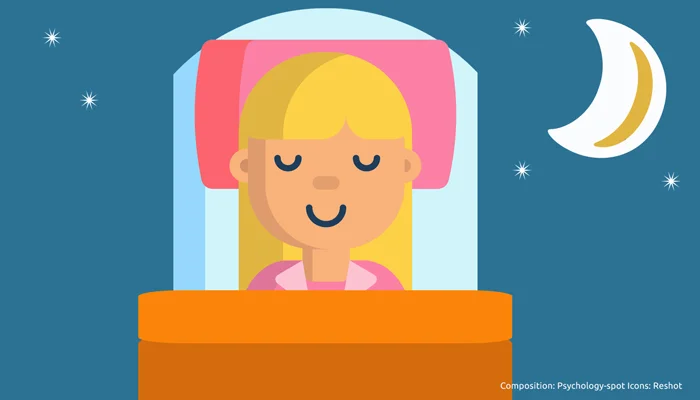
Sleeping little is harmful, we know it. More and more studies alert us of the psychological and physical risks of sleeping little or badly. In fact, now we know that sleep is essential to reduce the emotional impact of the experiences we had during the day, it’s also essential to memorize and even allows the brain to get rid of the waste substances of its metabolism. However, since every coin always has two faces, sleeping too much is also bad and can be harmful.
Sleeping too much affects our cognitive abilities
One of the biggest studies on sleep concluded that the ideal is to find a balance. After collecting data from more than 10,000 people around the world, researchers at Western University found that sleeping too much is bad.
Participants filled out questionnaires about their sleep habits and underwent a series of tests designed to assess their cognitive abilities. The researchers crossed all kinds of data, from age and educational level to the medications the participants took. Thus they discovered that, independently from these details, there was a common factor: too much sleep, greater deterioration of cognitive functions.
Both reasoning and verbal fluency depended on the duration of sleep. Intellectual performance was affected the same in people who slept little as in those who slept a lot. The ideal equilibrium point was found between 7 and 8 hours of sleep.
In fact, it’s not the first study that suggests a relationship between the duration of sleep and the decline of cognitive functions. Other research conducted at the Brigham & Women Hospital in Boston collected information of more than 15,000 women over 70 years of age.
All of them underwent cognitive tests every two years during the six years of the study. Their sleep habits were also analyzed. The researchers found that the hours of sleep were related to cognitive decline over time:
– Women who slept five hours a day or less during the night had lower average cognitive scores than those who slept seven hours a day.
– Women who slept more than nine hours had lower average scores than those who slept seven hours a day.
Curiously, both the women who slept little and those who slept a lot, had a mental age two years older than those who slept the necessary. That means their brain had aged faster.
Why sleeping too much affects our brain?
The effects of excessive sleeping on the brain have not yet been studied enough. However, it is known that sleeping a lot affects our circadian rhythm: a 24-hour cycle driven by our biological clocks that generates physical, mental and behavioral changes.
When we sleep more than usual, we break our circadian rhythm. In fact, the feeling of lethargy, fatigue and drowsiness come from a sleep cycle that has lost its tune, it’s like a continuous jet lag. As a result, people who sleep too much will begin to experience a series of side effects that result, in large part, from their body’s struggle to synchronize.
Excessive sleeping can also affect the production and reception of certain neurotransmitters in the brain, especially serotonin. That’s why it’s no accident that many people who sleep a lot reports having headaches during the day or even nausea.
Sources:
McHill, A. W. et. Al. (2018) Chronic sleep curtailment, even without extended (>16-h) wakefulness, degrades human vigilance performance.Proceedings of the National Academy of Sciences; 115 (23): 6070-6075.
Wild, C. J. et. Al. (2018) Dissociable effects of self-reported daily sleep duration on high-level cognitive abilities. Sleep.
Chen, J.C. et. Al. (2016) Sleep duration, cognitive decline, and dementia risk in older women. Alzheimers Dement; 12(1): 21-33.
Devore, E. et. Al. (2014) Sleep Duration in Midlife and Later Life in Relation to Cognition. J Am Geriatr Soc; 62(6): 1073–1081.



